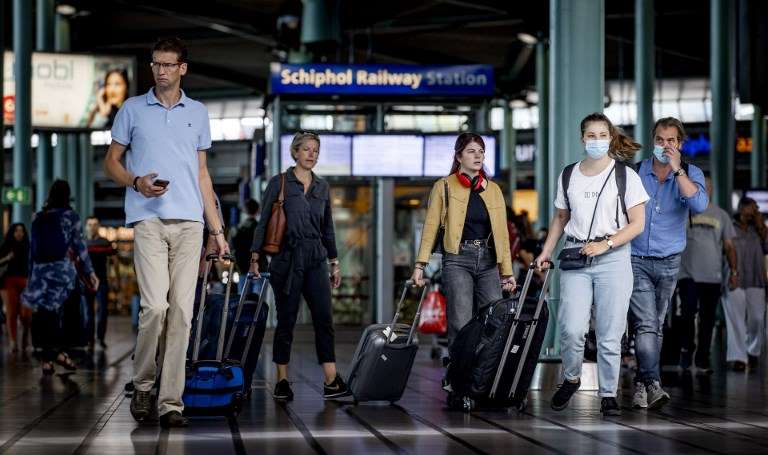The Omicron variant is spreading rapidly across Europe and has already seen a number of new measures introduced by individual states on top of many restrictions that were already in place at national and EU levels to combat the Delta-driven fourth wave.
The latest measures come at a difficult time of year, when health services are normally busy anyway with seasonal flu, and when it is traditional to see friends and family. The latest restrictions will interrupt many travel plans and health advisors have been imploring citizens to take all the necessary precautions to ensure that festivities do not trigger a new wave of infections.
Belgium has yet to decide on how its coronavirus strategy will evolve after the most recent measures were introduced two weeks ago. However, as neighbouring countries such as the Netherlands and France double down efforts to prevent the virus spread, it is unlikely that current restrictions will be relaxed at the next Consultative Committee, due to take place next Wednesday 22 December.
The situation in the Netherlands
The Dutch Government is meeting this afternoon (Saturday 18 December) to discuss stricter measures after it was reported in local media that the Dutch panel of expert health advisors called for a sector-wide lockdown. Prime Minister Mark Rutte is due to hold a press conference at 7 PM where the latest measures will be announced.
Since 28 November, the Netherlands has already had numerous restrictions in place that go beyond those currently operating in Belgium. In the hospitality sector, for instance, bars and restaurants must close between 5 PM and 5 AM. No more than four people can gather in a private home. These measures will continue until at least 14 January.
The situation in France
In a bid to slow the spread of the new variant, described by Prime Minister Jean Castex as "spreading at lightning speed", France put new travel restrictions in place on Friday. In particular, these are designed to prevent travellers from the United Kingdom from entering the country. The UK, with its relatively relaxed approach to coronavirus restrictions, has seen cases of the new variant surge with figures now in the hundreds of thousands. People can no longer travel from the UK to France, either for business or tourism.
Related News
- EU makes booster shots mandatory for test-free travel
- Number of coronavirus patients in intensive care continues to fall
- Omicron variant now accounts for 8% of infections in Belgium
Aside from travel into the country, it was announced on Saturday that the health pass existing in France will, early next year, become a "vaccine pass". Castex criticised the refusal of a small minority of French citizens to be vaccinated, saying that it was "inadmissible" that their resistance "affects the daily existence of a huge majority of people who have played by the rules since the start of the crisis."
The Prime Ministers comments came in the wake of a network of false vaccine certificates being discovered. Between 5,000 and 10,000 fake health passes were falsified, making an estimated €2 million for those behind the fraud. Anyone involved in such schemes will now face harsher sanctions.
New Year concerts and fireworks on Paris' Champs-Elysées have been cancelled.
The situation in Germany
Meanwhile, Germany has also beefed up its measures, with tougher restrictions placed on social gatherings and associated venues. End of year celebrations will be curtailed and the sale of fireworks forbidden. A number of travel restrictions have been imposed and those who have chosen not to get vaccinated will see their liberties shrink further.

